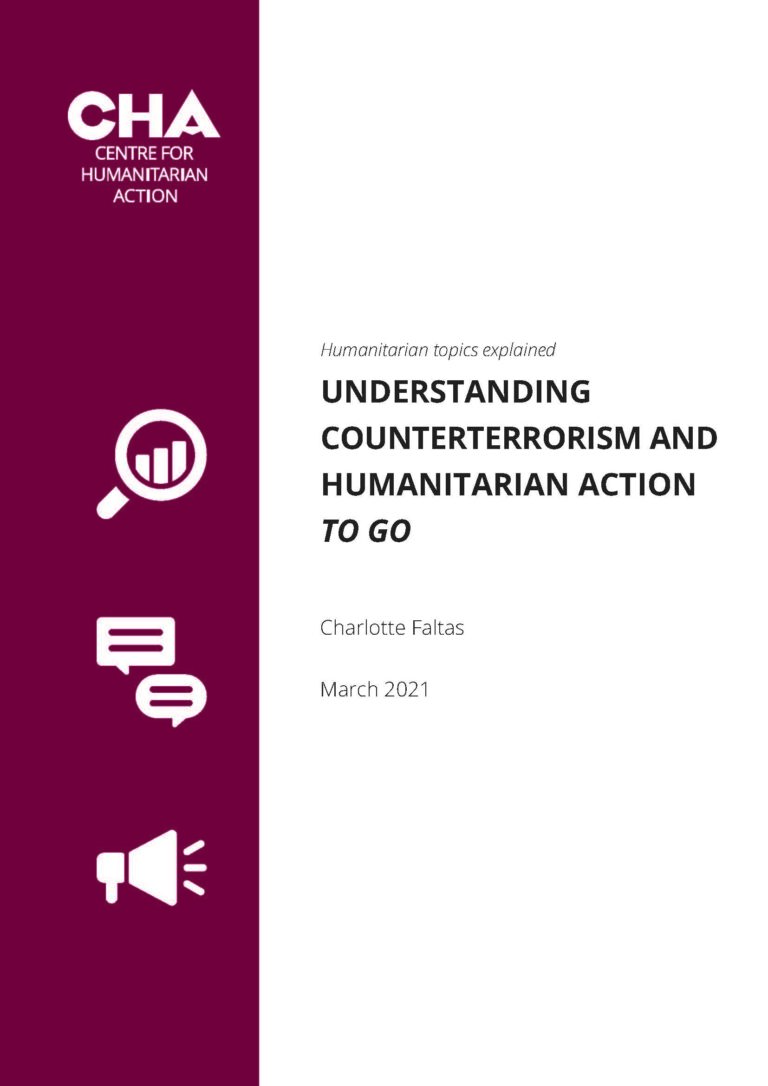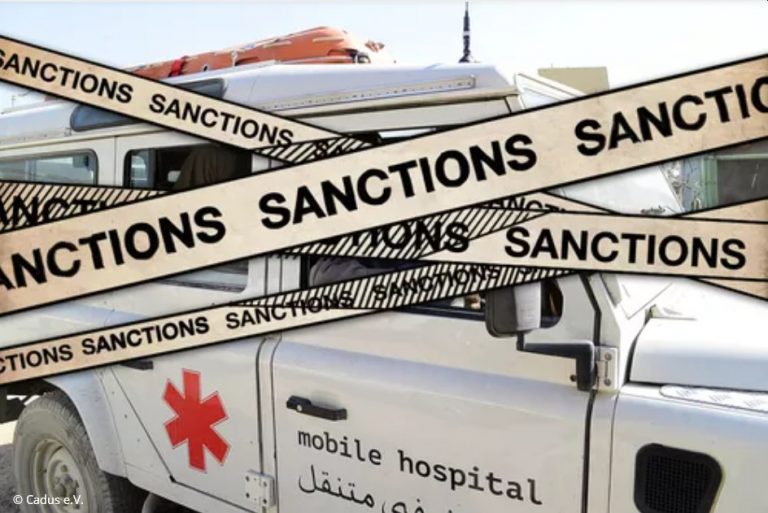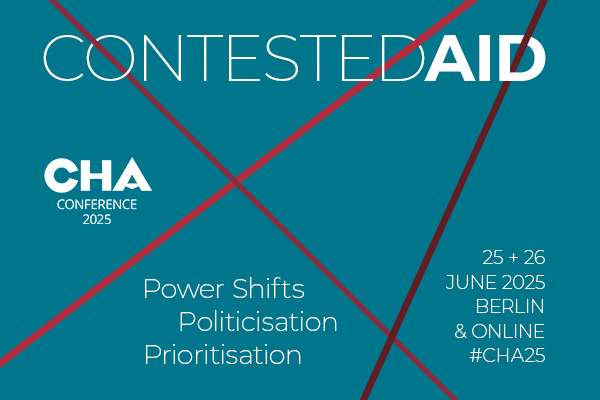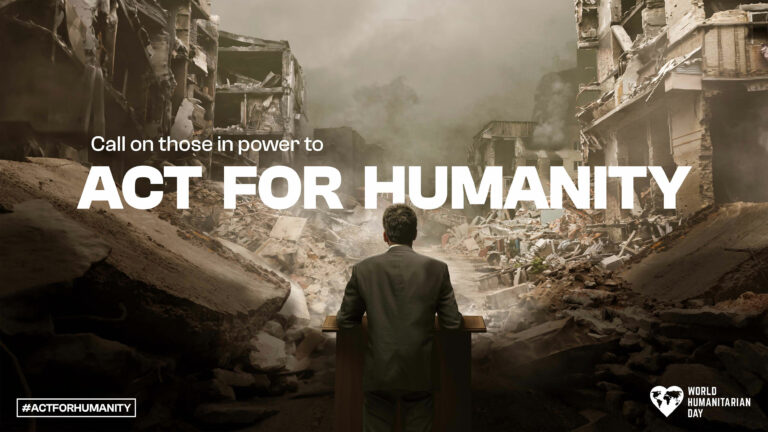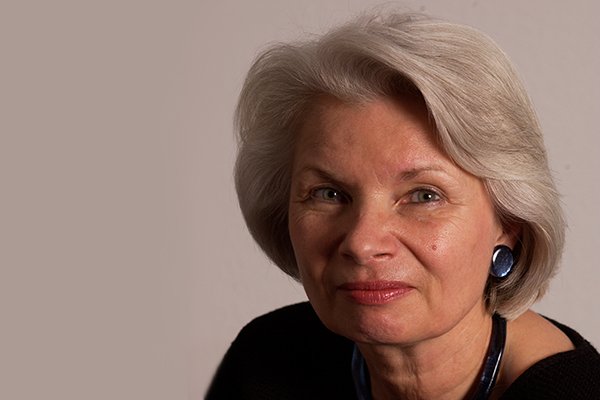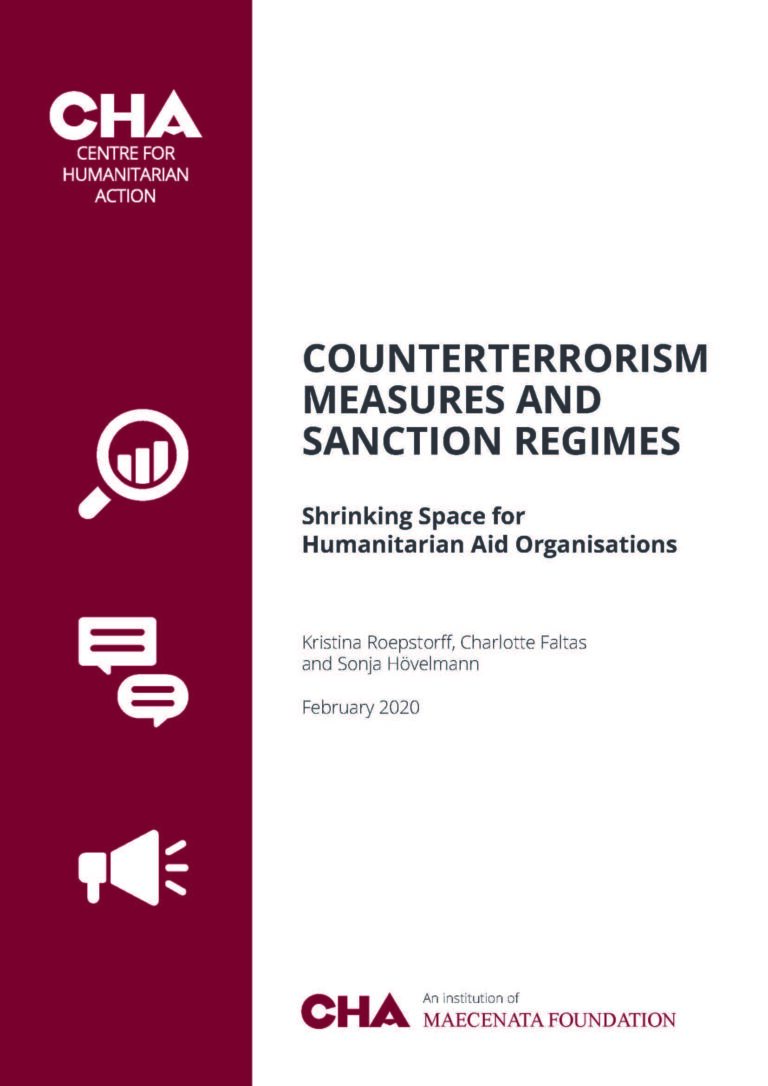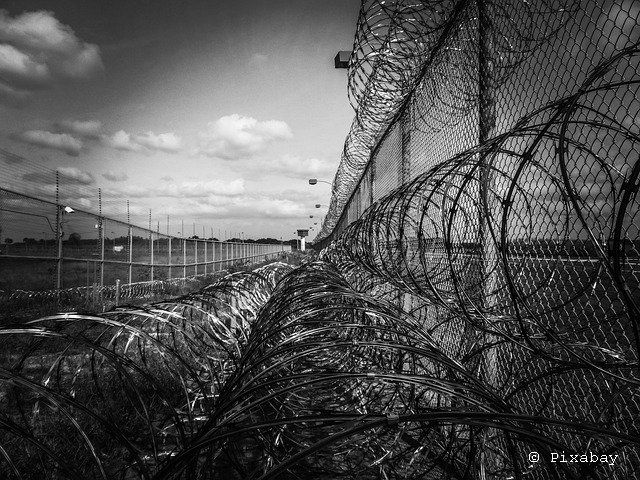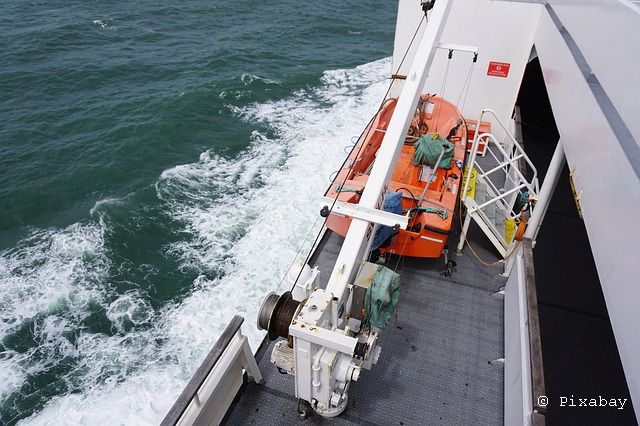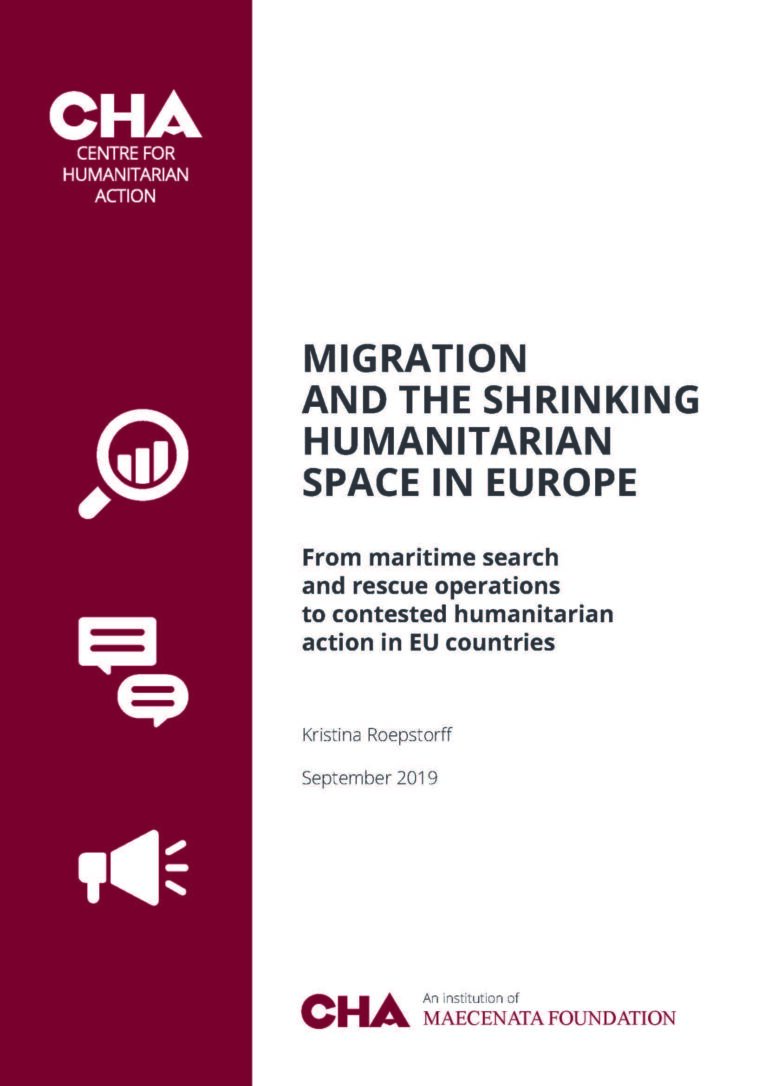The internationally much-debated issue of shrinking humanitarian space is considered a fundamental challenge for humanitarian aid and its principles. So far, however, this debate is mainly concerned with the countries of the Global South. The aim of this project is to examine the specific challenges and parallels of increasingly limited spaces for principled humanitarian action in the countries of the North and the South, with concrete practical examples. In the context of asylum and migration policies, including sea rescue, anti-terrorism legislation and localization, the topic will be examined and options for action will be discussed.
Understanding counterterrorism and humanitarian action - to go
14.04.2021Cadus Debate on Sanctions in Syria
13.04.2021On 15 April 2021, CHA research fellow Sonja Hövelmann is invited as a speaker in the next Cadus Debate on sanctions in Syria, hosted by Cadus e.V. – Redefine Global Solidarity. More information on the event and how to participate can be found here.
Localisation and Shrinking Civic Space: Tying up the Loose Ends
15.05.2020CHA Conference 2025
25.06.2025 00:00 - 23:59The CHA Conference 2025 took place on 25 and 26 June 2025 in Berlin Kreuzberg with a focus on "Contested Aid - Power Shifts, Politicisation and Prioritisation".
Impact of internal access constraints on humanitarian aid
23.08.2024While there is an increased need for effective and timely humanitarian assistance, the rise in internal access constraints is becoming a major challenge to the provision of aid. Pariwish Abbasi about the deliberate and willful obstruction of humanitarian aid.
CHA at rbb Radio3 on World Humanitarian Day
19.08.2024To mark World Humanitarian Day, CHA Director Ralf Südhoff was invited to rbb radio3 to talk about the most significant political challenges to humanitarian action.
Goodbye to humanitarianism?
24.05.2024Will Gaza become a turning point at which liberal democracies turn away from humanitarianism? And does this include Germany? asks Joël Glasman.
CHA Conference 2024
04.06.2024 00:00 - 23:59The CHA Conference 2024 focused on the topic “Climate & humanitarian crises and the lack of a joint response – Needs, narratives and necessities”.
Parliament hearing on health in conflict and war
01.09.2023CHA director Ralf Südhoff has been appointed as an expert for a public hearing of the Federal German Parliament and its Subcommittee on Global Health on 19 September 2023.
Humanitarian Aid as a Means of Combat?
12.07.2022German Federal Chancellor Scholz wants humanitarian aid to support Ukraine’s defence, in addition to money and weapons. A lapse that endangers humanitarian aid – also in this war. [German]
Yemen’s humanitarian crisis: a ‘brighter future’ ahead?
25.05.2022While the war in Ukraine is capturing the world’s attention, 20.7 million people in Yemen are in need of humanitarian assistance, up to 19 million people are food insecure, and 4.2 million people have been displaced due to the conflict.
Understanding counterterrorism and humanitarian action - to go
14.04.2021Cadus Debate on Sanctions in Syria
13.04.2021On 15 April 2021, CHA research fellow Sonja Hövelmann is invited as a speaker in the next Cadus Debate on sanctions in Syria, hosted by Cadus e.V. – Redefine Global Solidarity. More information on the event and how to participate can be found here.
Interview with the new CHA Research Fellow Darina Pellowska
09.09.2020Darina Pellowska has been a Research Fellow at CHA since July 2020. In this interview, the PhD student explains why the localisation debate – not only because of COVID-19 – has to be on top of the agenda and what a more participatory humanitarian debate culture could look like.
Interview with Charlotte Faltas on counterterrorism measures
27.05.2020In this interview, CHA intern Charlotte Faltas explains the latest CHA research results on counterterrorism, what she is currently investigating in her master’s thesis and how she copes in the home office situation in times of Corona.
Localisation and Shrinking Civic Space: Tying up the Loose Ends
15.05.2020Counterterrorism Measures and Sanction Regimes: Shrinking Space for Humanitarian Aid Organisations
27.02.2020Challenge Shrinking Humanitarian Space. An event review.
31.01.2020How can humanitarian actors operate in a restrictive environment in which provision of life-saving aid and the protection of people is criminalised? On 29 January 2020, the Centre for Humanitarian Action (CHA) together with Groupe URD organised an event on Migration and Shrinking Humanitarian Space in Europe. This was exactly the challenge that was discussed.
"Especially local helpers are affected". Interview with Kristina Roepstorff on the Shrinking Humanitarian Space.
13.01.2020Kristina Roepstorff has been a Research Fellow at the Centre for Humanitarian Action (CHA) since September 2019, where she heads the project on Shrinking Humanitarian Space. In this interview, she explains what Shrinking Humanitarian Space is and the challenges it poses for humanitarian action.


